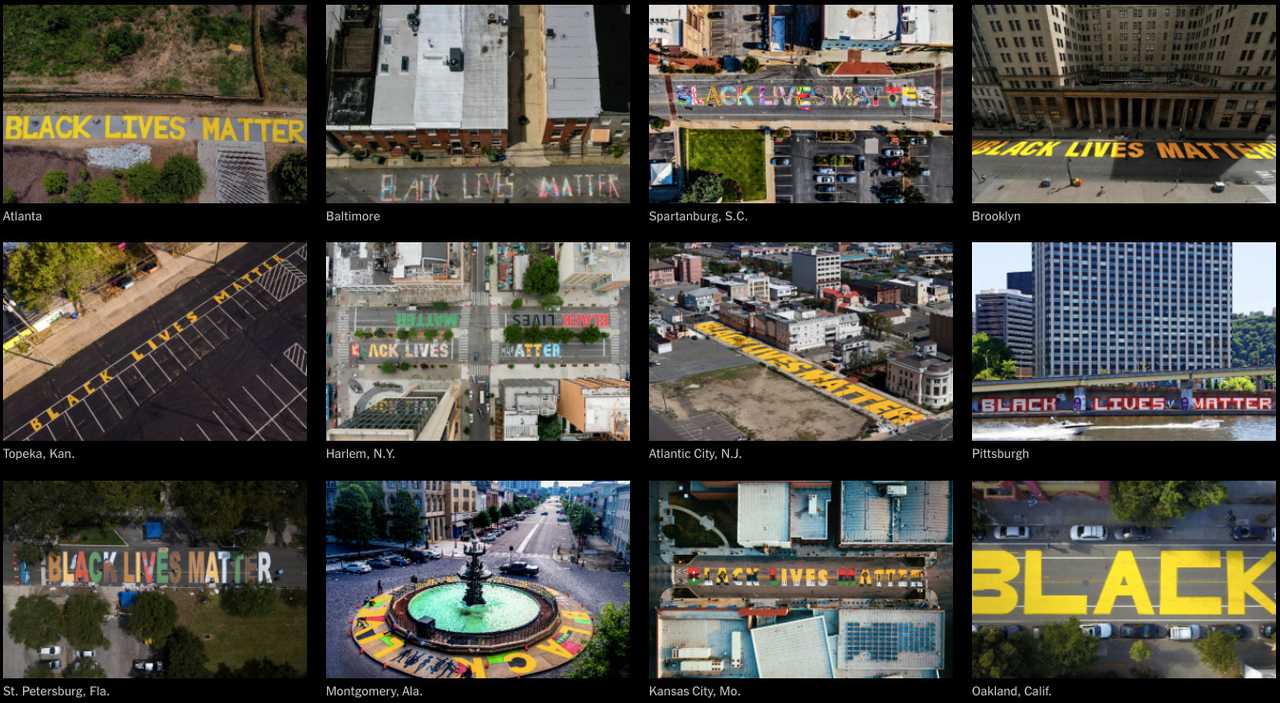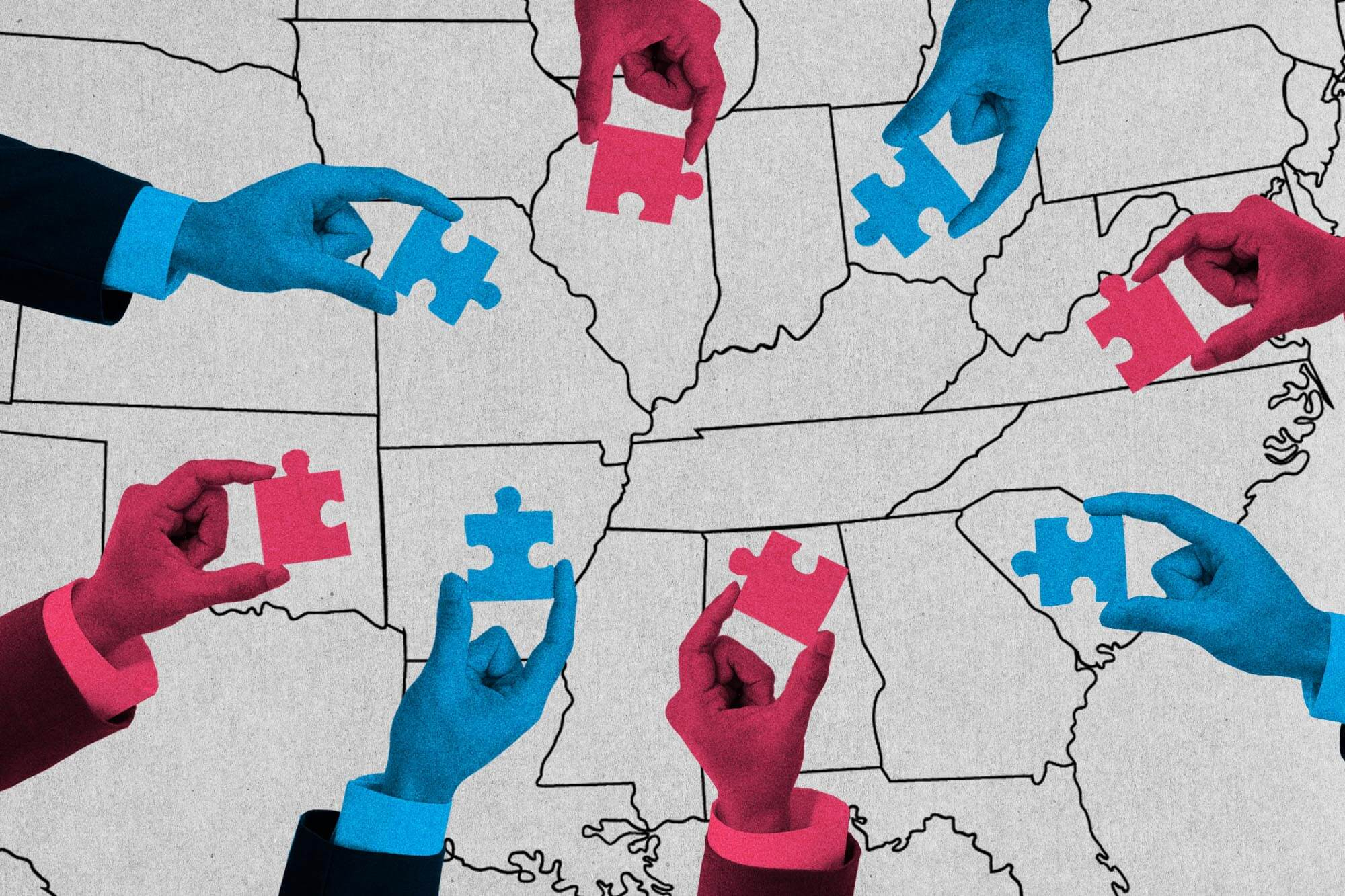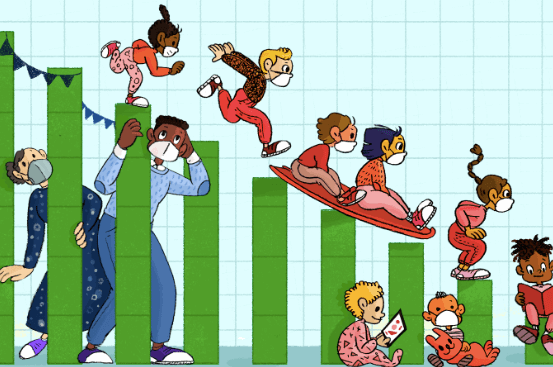George Floyd’s Murder: Two Years Later

Image: NYT
President Biden is expected to sign a federal use-of-force measure into law later today in commemoration of the two-year anniversary of George Floyd’s murder.
An estimated ~20 million Americans joined protests against police brutality in the weeks and months after Floyd’s death, marking one of the largest demonstrations in US history.
What’s happened since then? Let's take a look (aka, get ready for a data dump).
🚨 Legislation...
- On a federal level: The George Floyd Justice in Policing Act passed the House in a mostly party-line vote last March, but was blocked in the Senate amidst opposition from Republicans.
- On a state level: 24 states plus D.C. have enacted new police reform laws since Floyd’s death; ten provided body cams to all officers, 16 banned officers from using neck restraints, four limited qualified immunity for officers, and five outlawed no-knock warrants.
🗳️ In Minneapolis, where Floyd’s death occurred: A measure that would've abolished the Minneapolis PD in favor of a "public-health oriented" Department of Public Safety was rejected last November by a 56-44 margin.
- Minnesota’s Department of Human Rights published a report last month that found the city's police department had a long-standing pattern of racial discrimination.
💰 Civil settlements: Minneapolis agreed to pay $27 million to Floyd’s family last year to settle a wrongful death lawsuit; a recent WaPo analysis found America’s largest police and sheriff’s departments have paid out $3+ billion for claims of wrongful injury or death over the past decade.
See the 360° view on police reform →

From the Left
- Some commentators on the Left contend that America has seen little progress in terms of holding police accountable for instances of brutality, citing the stalled George Floyd Act in Congress and data that shows police killings remain near all-time highs.
- Others argue that police reform in the US is a lost cause for the time being, with support for – and interest in – the BLM movement waning as inflation, the war in Ukraine and abortion take over the cultural zeitgeist.
“On anniversaries like this, it’s hard not to ask: Have we seen progress?
In the Floyd case we witnessed convictions. Derek Chauvin was found guilty of second-degree unintentional murder, third-degree murder and second-degree manslaughter, and the other three officers on the scene were convicted of federal civil rights offenses. Accountability…
What about justice? True justice is, of course, impossible. When the life of a person who is treasured by so many is wrongfully ended, nothing can make up for that loss. A civil action is the best remedy we have not only to provide a measure of justice to a grieving family but even more to serve as a costly deterrent to future bad behavior.
The city of Minneapolis’s $27 million settlement with the Floyd family sent a message to police departments throughout the country that they will pay a high price for egregious behavior…
Then there’s reform. More than 140 police oversight and reform bills passed at the state and local levels after Floyd’s death. But the sweeping, comprehensive reform that would transform policing and reframe the relationship between police departments and people of color stalled from a lack of political will. The George Floyd Justice in Policing Act passed in the House but died in the Senate.
The consequence of this unfinished business is that Black people lack the final, most important measure of progress: security, the chance to exhale and simply live our lives… Only with widespread police reform will Black Americans ever get to breathe.”
“Some good came of the protests, to be sure. Some states and local municipalities passed or instituted police reforms. Money poured into Black Lives Matter, as well as other racial justice organizations and Black institutions. Individuals began personal journeys to become more egalitarian and more actively “antiracist.” And artists produced hundreds of murals and thousands of pieces of other street art that, for a time, transformed this country.
In the end, transformative national change proved to be an illusion. Inflation, a war in Ukraine, public safety, abortion and even a baby formula crisis have overtaken the zeitgeist. Support for Black Lives Matter has diminished. Federal police reform and federal voter protection both failed to pass the Senate. And the founders of Black Lives Matter have been drawn into controversies about how they handled its money.
I’ve learned not to expect much from America; it has a deep capacity for change but a shallow desire for it. I have embraced the “wise desire not to be betrayed by too much hoping,” as James Baldwin put it. But I worry about young people in all of this. It is their faith that’s most vulnerable to damage. They were the ones who most believed that change was not only possible but imminent, only to have America retreat and retrench…
In my life I have arrived at the conclusion that real liberation — equity, safety and “the pursuit of happiness” — is not rooted in feelings and personal evolutions. Only a change in the parameters of power — political, economic and cultural, who has it and who gets to exercise it, who is benefited by it and who is harmed by it — can transform this country.”

From the Right
- Some commentators on the Right argue that Democrats’ calls for “defunding the police” have resulted in an outflux of officers quitting departments across the country due to lack of support, which results in higher crime rates and worse outcomes for citizens.
- Others contend that the ‘woke’ Left is wrongfully pushing the idea that America is a racist country, which only serves to divide and distract the populace from more pressing issues plaguing our country.
“The murder rate in Minneapolis nearly hit a record last year with 96 homicides, double the number from 2019. That increase coincided with a mass exodus from the police department. More than 300 officers out of 825 have quit since Mr. Floyd’s death.
To the visitor, the lack of order is most readily apparent in George Floyd Square. The barriers that blocked traffic during the past two years are gone, but the four-block area is still essentially an autonomous zone… The city has proposed refurbishing the square as a community plaza, but the mixture of racial-justice activists, residents, and local gangs vying for control make it unlikely.
“This is still an active protest space,” says activist Susan Heineman. “So we say, ‘Meet our demands and then we’ll talk.’ ”
Those demands include firing numerous city leaders, ending qualified immunity for police officers, and giving hundreds of thousands of dollars to the various groups occupying George Floyd Square. According to a manifesto posted in the square, activists won’t consent to the community-plaza proposal because “the George Floyd Memorial is first and foremost a place of protest, not commissioned by the City but by the people against the City.”
This sort of intransigence will keep Minneapolis from healing, says Don Samuels, a former city councilman, who has emerged as the leader of a criminal-justice reform movement that explicitly rejects defunding the city’s police. Mr. Samuels, who marched in the initial protests after Floyd’s death, says that as soon as he saw rioting begin, he understood that the movement would be hijacked by extremists…
Mr. Samuels still thinks there is a path to recovery, though it will be difficult for cooler heads to prevail.”
“For American progressives, evil only comes in one color—white; woke progressives have bought into a worldview in which people are classified and persecuted entirely due to their racial genome.
This orthodoxy is dangerous and divisive. It's also fundamentally wrong. The truth of the matter is, Americans have never been less deserving of being called racist than we are today…
Most Americans are not racist. Roughly three in four Americans—including whites, Republicans, and independents—regard racial diversity as "very good" for the country.
Such progress does not fit well with what President Biden promised in his inaugural address would be a central commitment of his presidency: to focus on the "sting of systemic racism" and encroaching "white supremacy." With these sentiments, the President was reprising an elitist vision that took hold during the Obama years… that people be appointed to high office in large part based on race…
Obama's failure, like Biden's, lies in focusing on symbols rather than on material issues like class. Of course, it's good that legal and social barriers have fallen for racial minorities, but even in the best of times, our economy fails many minorities as well as working people in general…
These fundamental problems cannot be addressed by genuflecting to the increasingly discredited Black Lives Matter movement… or by issuing confessional mea culpas about racism and embracing Critical Race Theory. The real problem—for minorities and many other Americans—lies in the economic challenge faced by working class people. Minorities make up over 40 percent of the nation's working class and will constitute the majority by 2032. Without them, our country's labor shortage and issues with aging would be far worse.
Instead of confessions about our inner racism, we would do better to focus on how to create better prospects for these Americans.”
Share this!
Recent Discussion stories

Discussion
| May 23, 2022How Redistricting is Shaping the Battle for Congress
🇺🇸 A New York state judge adopted a new US House district map late Friday, replacing the one previously drawn by Democratic lawmakers after a months-long legal challenge from GOP voters.

Discussion
| May 20, 2022Why Are Public Schools Losing Students?
🏫📉 Enrollment in Los Angeles public schools is expected to plunge by nearly 30% over the next decade, according to a presentation outlined Tuesday to the city’s Board of Education.

Discussion
| May 18, 2022Midterm Season is Heating Up
🗳️Yesterday was the busiest day of the midterm election season so far, with primaries in Idaho, Kentucky, North Carolina, Oregon, and Pennsylvania.
You've made it this far...
Let's make our relationship official, no 💍 or elaborate proposal required. Learn and stay entertained, for free.👇
All of our news is 100% free and you can unsubscribe anytime; the quiz takes ~10 seconds to complete